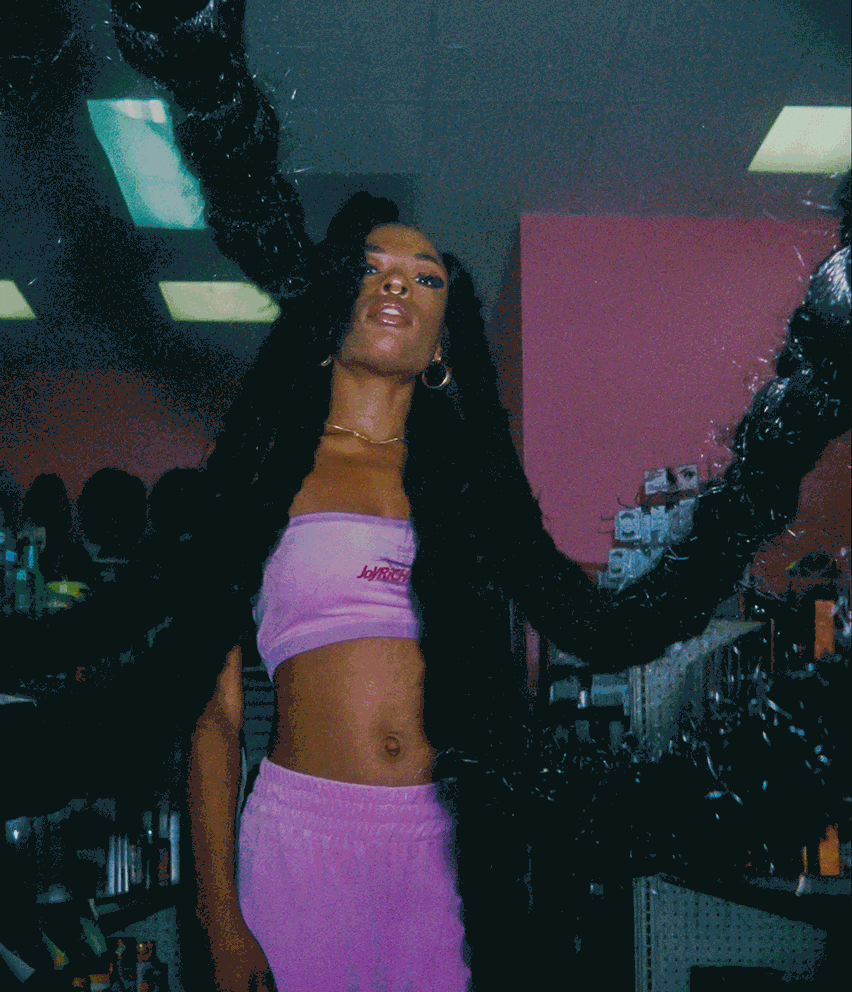As Black History Month comes to a close for yet another year, the running theme of championing Black creativity is still necessary. Spotlighting creatives with our visual and written ‘Black In’ series, we’ve enjoyed the numerous narratives we have acquired these last 31 days. To end the month, we’re appreciating some artists who are notoriously Black in their music, with voices (and sounds) that are essential beyond this month alone. Here’s a list of nine artists and their projects/songs that are unapologetically Black.
1. Nubya Garcia’s ‘SOURCE’

Nubya Garcia happily shows off what her Blackness means to her within her work. The multi-awarding, London-born saxophonist’s debut album SOURCE represents the rooted richness of one's heritage and how it draws up a map of one's life. She told JazzWise:
“THE RECORD IS ABOUT PERSONAL AND COLLECTIVE POWER THROUGH RECONNECTION, AND EDUCATING MYSELF AS MUCH AS I CAN ABOUT MY CULTURE AND MY HISTORY.”
- NUBYA GARCIA
2. Pip Millet’s Running (featuring Ghetts)
The honey-toned songbird radiates the essence of power with ‘Running’. With a provocative take on the Black (British) experience, both Pip Millet and Ghetts don’t hold back with this one. Along with stunning visuals that exude royalty and grace, the pair confronts what freedom means for Black Bodies in this new decade.
3. Myles Cameron’s Picket Fences
Myles Cameron provides listeners to discover a perspective of Blackness within white-dominated spaces. Picket Fences beckons listeners into a world of solitude and division being applauded by the “urban black boy”. Myles Cameron doesn’t shy away from his identity as he recognises it to be the superpower of what makes him great!
PICKET FENCES/ I FEEL THE MOST BLACK ‘GAINST/ THOSE PICKET FENCES/IN THE SUBURBS - Myles Cameron’s Picket Fences (2019)
4. Sudan Archives’s ‘`Athena’
When discussing Afro-Futurism, Sudan Archives is a name warranted in the conversation. Her recent project, Athena, consists of genre-bending sounds as sharp tones of her violin compels us to enter this modern-day immersive soundscape. With rich R&B heritage blueprinting Sudan Archives sound, her fresh take to the genre is electrifying as it leaves us all to wonder what it is she’ll come up with next.

5. Oshun’s ‘Me’
The dynamic duo of Hip-Hop and Soul oozes the Black Spiritual experience. Inspired by the Yoruba Goddess Oshun, the pair proudly delivers images of the Divine Feminine inspired by the continent while “reclaiming their roots”. Me affirms the importance of self-love and having confidence in your very existence. Enter a Utopia that has you in the center, and don’t hesitate to enjoy every last second of it.
6. Harleighblu’s Queeen Dem (featuring Bluestab, Janne Robinson)
This slick number is a laid back, smooth Neo-Soul experience shouting out to all the women that exist and we may have come across in this life. Harleighblu's fusion of Jazz, Soul and Hip Hop provides this smooth songstress to carve out her own lane. And with uplifting lyrics that possess just the right amount of feel-good vibe, you can’t help but bop your head with a smile.
7. Jazmine Sulivan’s Girls Like Me (featuring H.E.R)
Very similar to the track we listed above, Jazmine Sullivan’s, Girls Like Me (and Heaux Tales as a whole) humanises Black Women’s sexuality and what that means for them. Both H.E.R and Jazmine's alluring, powerful vocals of vulnerability recounts emotions and thoughts many have found themselves.
8. Jorja Smith’s ‘By Any Means’

A song of protest. Jorja Smith’s remedy to uplighting Black youths and reminder to better days spotlights the importance to keep fighting for what it is we believe in. Reflecting on last year’s Black Lives Matter protests, By Any Means boldly calls out the pain and suffering many have faced while finding strength during a time of bleakness.
9. Kojey Radical’s War Outside
It’s punchy and it's daring! Kojey Radical and Lex Amor's War Outside put together demanding visuals that cross-reference historical black moments that have occurred. Lex Armor delivers her verse behind a bullet glass, visually referencing Angela Davis at Madison Square Garden in June 1972. The imagery itself gives flowers to iconic Black significances that have played out in history.


What have been your favourite takes of unapologetic Black narratives this month? Let us know!